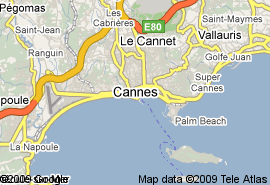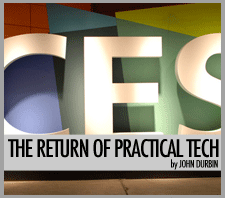5 Cannes Conclusions
Posted by Dan Buczaczer | June 30, 2009
I spent last week in Cannes for my first ever Lions and am still too jet-lagged to type anything too highminded about the festival. But here are 5 conclusions I walked away with:
1. Digital is the core of every Integrated campaign. It’s simply too powerful and offers up too many tools to play an incidental role any more. I’m not saying that most campaigns out there use digital effectively. I’m just saying that those impressive enough to win a top Lion will largely be earning that honor based on a central role for online and/or mobile. Even though the Obama campaign, this year’s Grand Prix Integrated winner, was largely grass-roots focused, it was still MyBarackObama.com as well as strong presences across social media channels that added scale and organization (and brought in the cash).
2. “Interactive is becoming less about the computer”. I’m sure I bastardized the quote but Lars Bastholm, who led this year’s Cyber jury said something similar to that and I could not agree more.The best work in interactive media is becoming less about impressing with fancy technology and more about facilitating things people want or had previously never dreamed of. Campaigns like Best Job in the World and Fiat Eco Drive really illustrated this.
3. Great Social Marketing provokes. I’m personally sick of marketer after marketer setting up a hub for people to leave their favorite bottled water memory or a Facebook fan page to view the 30 second ads. So it was refreshing to see that a lot of the winning digital work that incorporated social only did so after creating a compelling reason as to why we, the consumer, should even care. Batman gave us a host of ways to live out our Gotham fantasies. Queensland offered up a once-in-a-lifetime job opportunity. The Swedish Post Office gave you ways to get in touch with Stefan, a guy willing to swap anything in his life for anything else. In other words, effective social media requires as much imagination (or arguably even more) as any other form of marketing to really get people to care.
4. Becoming memorable often involves taking risk. This thought came from David Plouffe, Barack Obama’s campaign manager, who was hands down the best speaker I saw in Cannes. Plouffe noted that many of the key moments of that campaign (going to Europe, running a 30 minute ad when most thought the election was his, holding the convention in a stadium) had never been done before and could have been disastrous if something had gone wrong. The pundits repeatedly questioned the moves as they were implemented but these were the moments that helped define Barack and convince voters he truly was different. An inspirational example whenever we’re trying to get clients to step away from the tried and true.
5. Cannes does still matter. Yes, it’s right on the beach and must account for most of France’s Q2 alcohol sales but it ultimately feels like the place where the best work gathers to be dissected and debated. Putting aside the (completely legitimate) complaints about ads that only run once and a few ridiculous exercises in creative for creative’s sake, there was plenty to inspire at Cannes. And the more the landscape continues to change dramatically, the more we need the opportunity to gather globally and assess how well we’re all handling those changes. Maybe that’s just the naive take of a Cannes virgin in the year the festival apparently sobered up.
Leave a Comment
RSS feed for comments on this post · TrackBack URI

